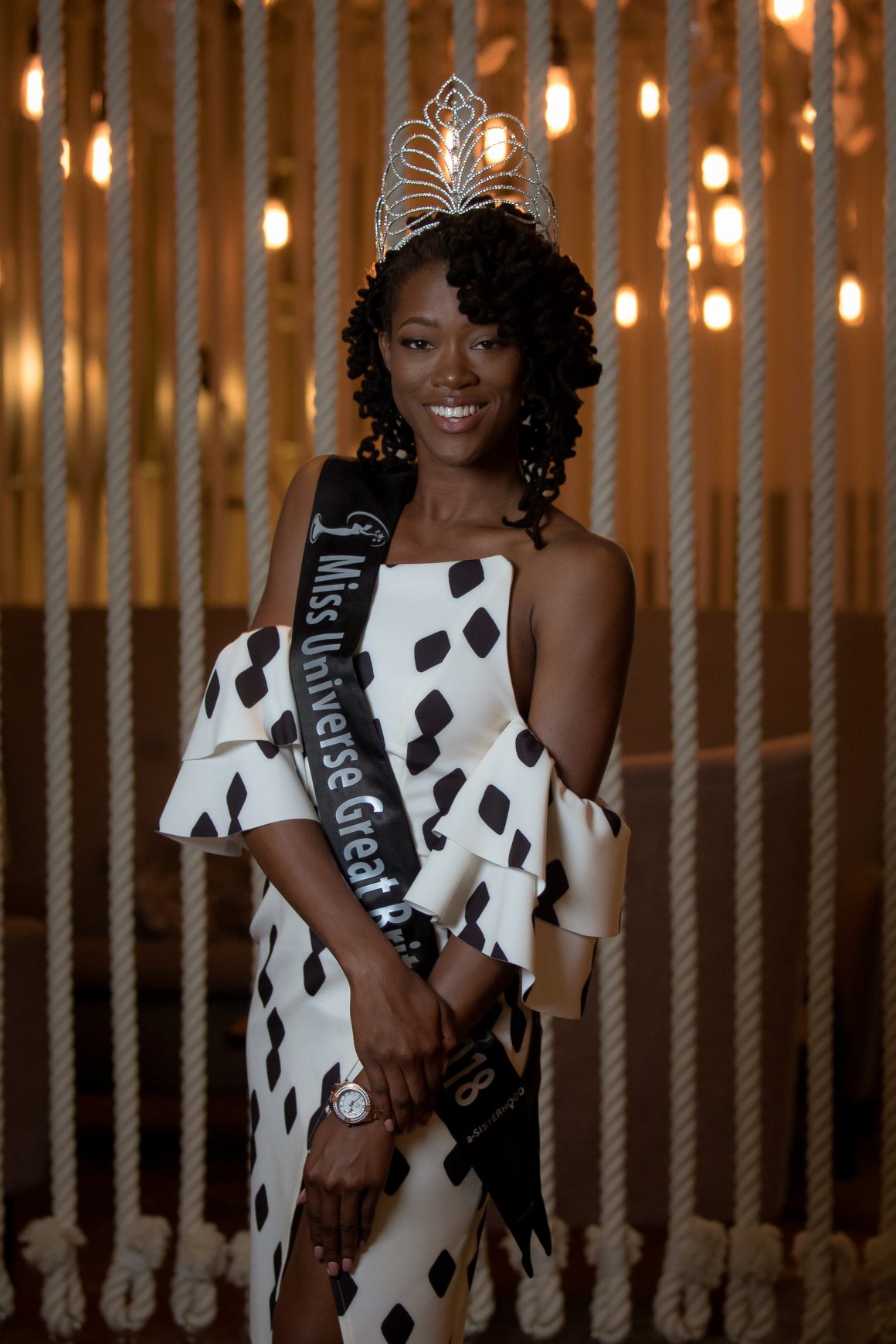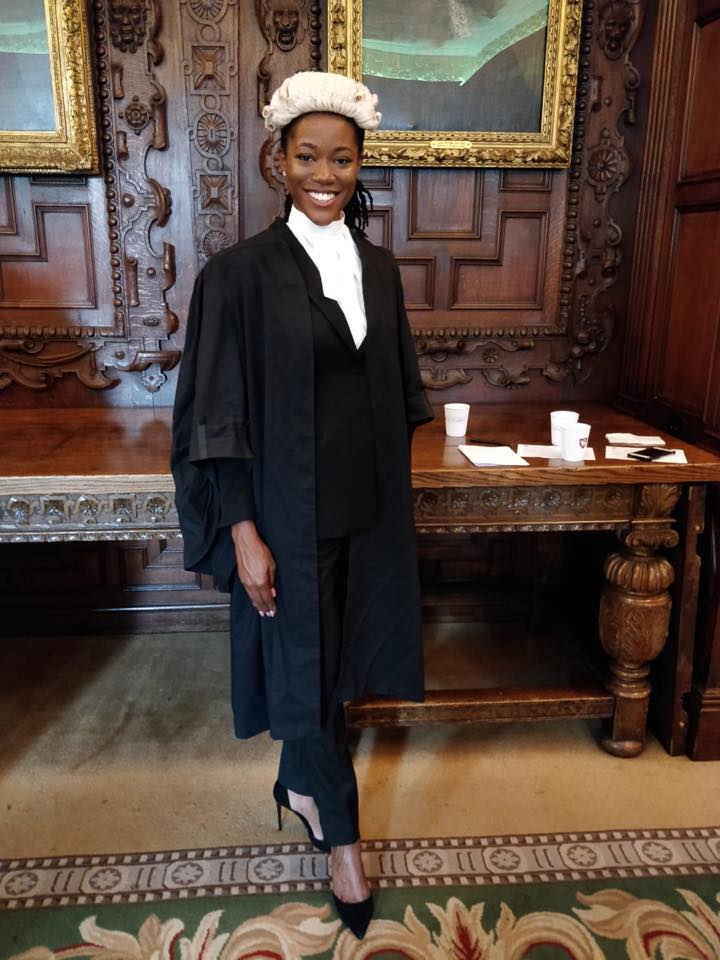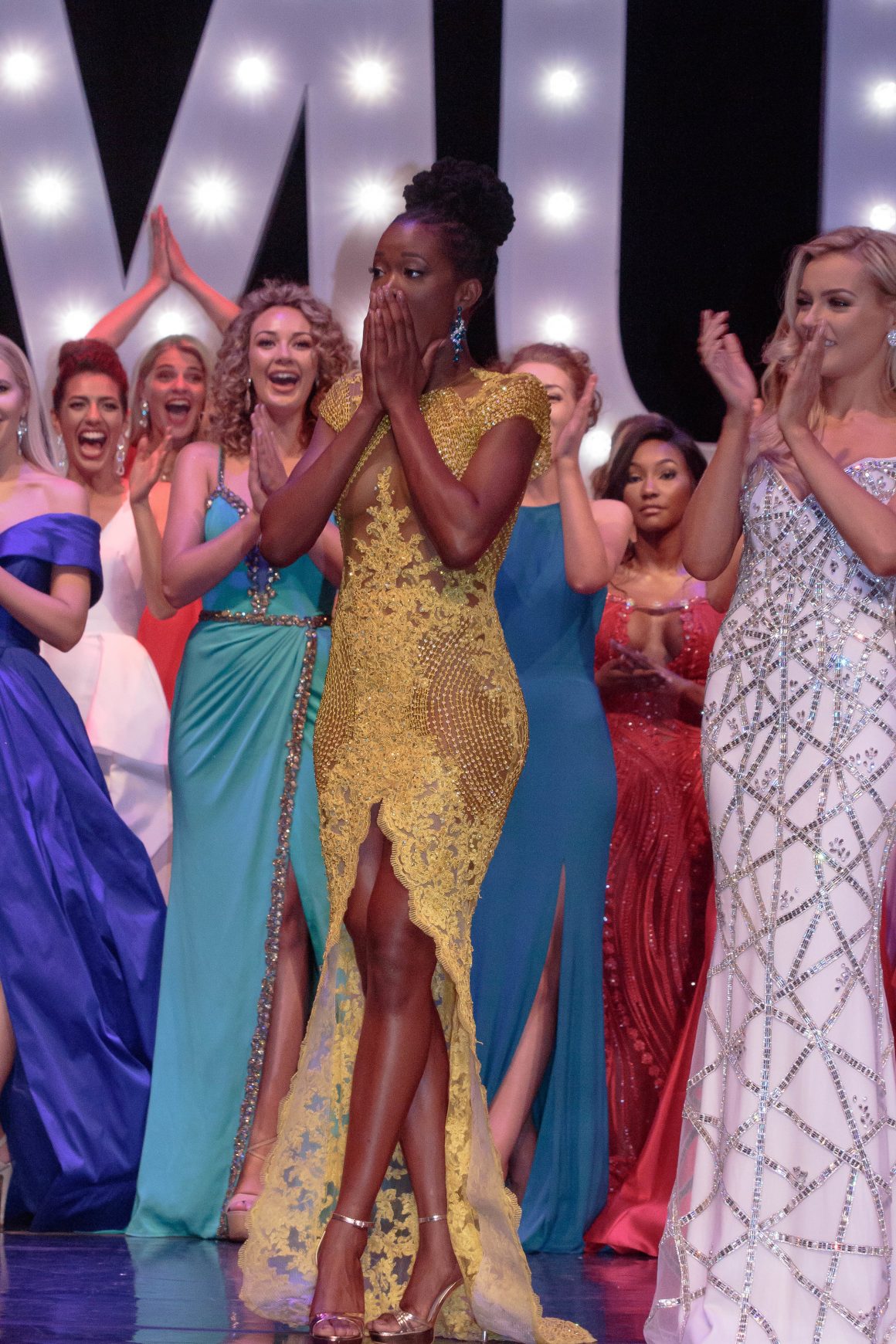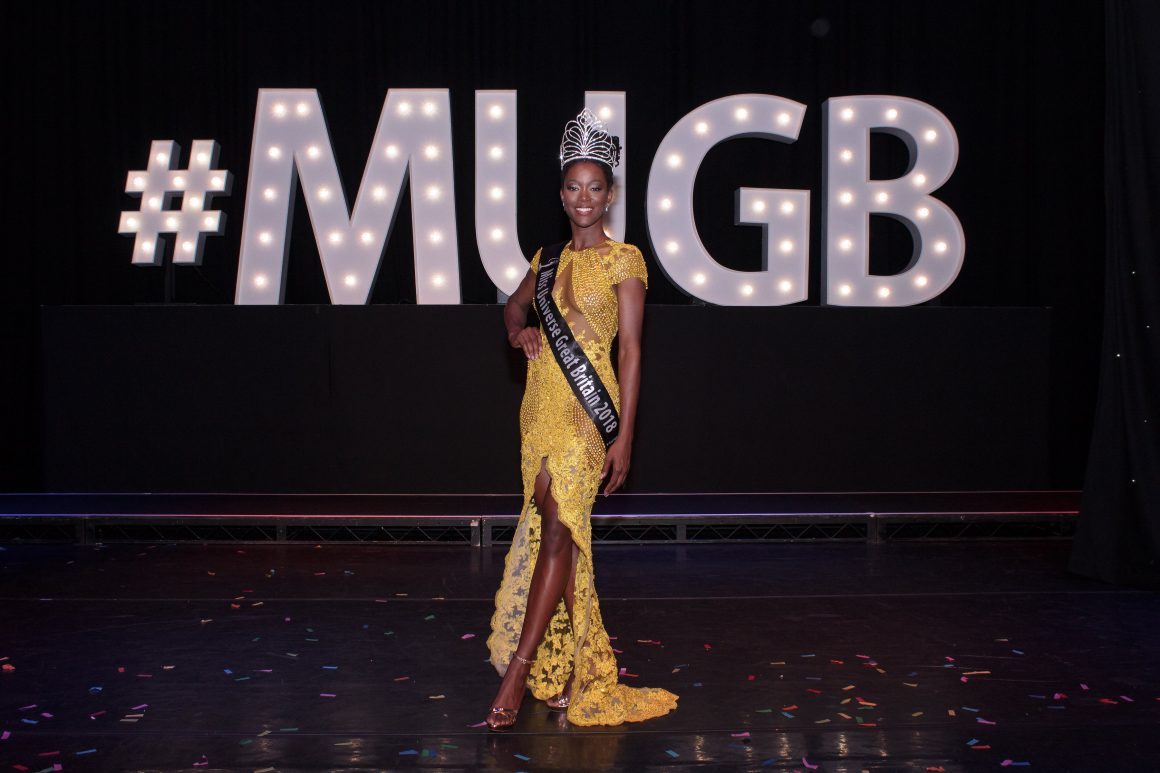On a lovely warm afternoon, and in front of the beautiful backdrop of Park House Restaurant I sat down in the company of the first woman of colour to be crowned Miss Universe. Dee-Ann Kentish-Rogers is what can only be described as an anomaly. Not only does she have clear beauty and grace, but an incredible mind. She is extremely intelligent, having just qualified as a Barrister after completing her Bachelor of Laws. Being able to also call herself a former Team GB athlete who has competed at the Commonwealth Games, it really seems that there is nothing that this incredibly talented and determined woman can’t put her hand to. I was enthralled to get more familiar with her and understand what really drives her. In a world which seems to become more divided every minute, Dee-Ann is a refreshing reminder that equality is the key to empowerment.
What was it that made you enter beauty contests?
It’s the story that I’m telling all the time. Really what started it for me was an injury I picked up in 2014 at the Commonwealth games. It was an injury that kind of put an end to my athletic career, but I didn’t want to let go, so I kept on trying and my coach said “You know, this is a bad idea. You’re going to be a cripple by forty”. The doctors said: “We can operate on you…but I don’t really advise it, I just advise you to stop competing.”
It was hard news, but I think I’ve always wanted to do something competitive and that’s what guided me towards beauty pageants. In Anguilla there’s a beauty pageant which is held every year; the Miss Anguilla pageant. I used to go them, watch them, and think “They’re such beautiful, intelligent young women” and usually they use their platform and go into politics or medicine – they’re very accomplished young women. I started meeting them and they encouraged me. That’s how it started.
How did you get into Miss Universe?
I sent my application at the beginning of January, after I won Miss Anguilla (in 2017). I kept saying “Why don’t I do something that’s the equivalent of the Olympics?” It sounds weird but when you start in track and field, the end goal is the Olympics. Then when you do other things, you start thinking much bigger, so I started thinking what was the pageantry equivalent of the Olympics? And it was Miss Universe.

Amazing! Let’s bring it back to now, you’re training to be a barrister?
Yes, I’ve just qualified as a barrister.
What made you go into Law?
I have a massive family and a lot of them are lawyers. It was a tradition I grew up around; I grew up around my aunts and uncles and my cousins debating cases at the dinner table. So, I developed an interest: I joined the debating society, I captained the debating teams, we won competitions. I caught the bug. The law bug.

Being from the Caribbean, do you see any cultural issues you think need to be changed?
I definitely think the way young Caribbean men view women is problematic. The thing about those regions is that you are surrounded by people like you, but not by people who necessarily are striving for top leadership positions. When it comes to politics, that’s still a bit of an issue because leadership in women is not common. We play a more vital part in the region in terms of developing families and taking the front role with education and health, and take the backseat in politics.
It’s interesting that you mention empowerment of women because going into something like Miss Universe, you are judged essentially on how you look. But you’re also in such an empowering role being a barrister. It’s almost a contrast, would you say?
What I’ve been telling people is, I’ve had a very different experience of women and their participation in beauty pageants from Miss Anguilla. In the Caribbean, beauty pageants aren’t looked at in that way. If you look at the Carnival, people are dressed in nothing! And no man who sees a woman in the Carnival in the Caribbean is going to say that she doesn’t respect herself. There’s no questioning of her morals. I think it’s partially a cultural perception of pageantry and unless you go in to try and change it from within, I think the perception will remain the same. Coming from my background, I see pageantry very differently (than the UK).

How does it make you feel being the first woman of colour to be crowned this?
I’m happy! I mean, it’s just funny that in 2018 we’re still talking about colour. But hopefully I’ve cracked open the feeling in many more girls that they are capable and worthy.
What would you like to do with your title?
I really want to inspire young girls; I want them to understand that once you have self-belief, you have taken the first step to achieving your dreams. To me self-belief comes from taking risks, helping others because I think you build yourself up when you help others and understanding that even if the first time things don’t work out with following your dreams – which is what happened to me with the Olympic games – you can reinvent your dreams and do something else.

What would you say to young girls who want to get into this industry?
I would say definitely go ahead – give it a shot. Even if you don’t win, the journey is the biggest part of the lesson and what you develop most from. In Miss Universe Great Britain, we have a charity called A-Sisterhood where we support the victims of female genital mutilation, support stopping acid attacks, and support women in homeless shelters. There’s a lot more to it than what meets the eye; once you get involved in it, start fundraising and helping others, you see the value.
To find out more about Miss Universe GB, visit http://www.missuniversegb.co.uk/home.html.
Words by Rosie Harris











